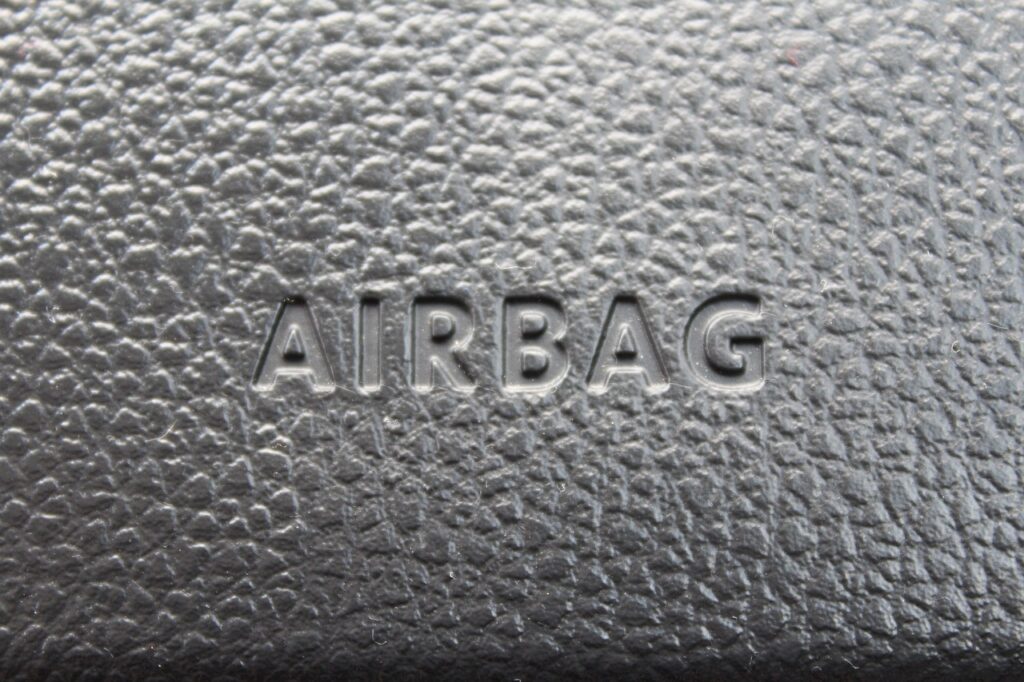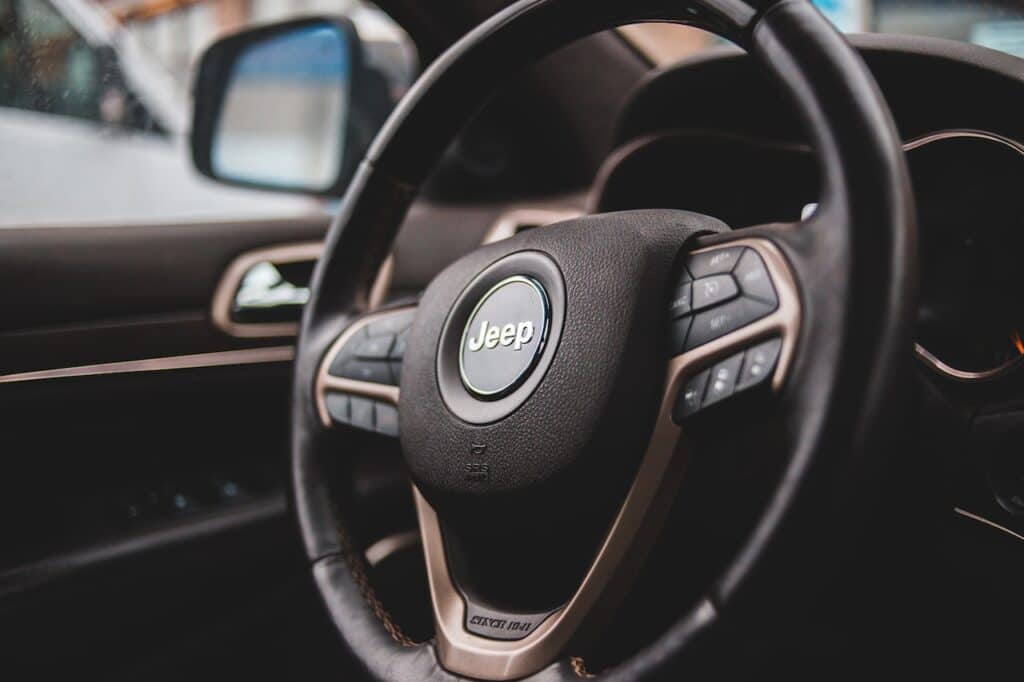The Takata airbag recall stands as the largest recall of vehicles in the history of the United States, marking a significant event in automotive history. This recall involves a whopping number of vehicles, with tens of millions included. Sadly, more than 20 individuals have lost their lives, and hundreds have been injured due to defective Takata airbags.
In 2013, the Takata Corporation initiated its first airbag recall after a sequence of unfortunate incidents that resulted in injuries and deaths. The airbag components that were supposed to blow up the airbag exploded unexpectedly, shooting metal fragments towards passengers and drivers. According to Consumer Reports, by March 2019, at least 24 people worldwide had died and 300 others were injured because of these defective airbag inflators.
The recall in 2013 initially impacted 3.6 million vehicles. However, this was only the beginning. By 2019, further recalls had expanded to 41.6 million vehicles equipped with 56 million Takata airbags. The National Highway Traffic Safety Administration (NHTSA) predicted that the recalled airbags would total between 65 million and 70 million by 2019.
In December 2019, five car manufacturers recalled older model vehicles due to a different issue with Takata airbags. The airbags included in this recall did not inflate correctly in a crash. This new recall impacted 1.4 million older models from Japanese and German automakers.
At the time of the first urgent safety recall, Takata held roughly 20% of the worldwide airbag industry, making it one of the three biggest airbag suppliers. At least 34 car brands, from Ferraris to Ford, have been impacted by Takata recalls. If you happen to drive one of the impacted vehicles, you can have the recalled airbag repaired at no cost to you.
It’s essential to check if your car is part of these recalls for your safety and the safety of your passengers.
Airbag Explosions
During a car crash, an essential safety device known as an airbag inflator activates a quick-burning chemical explosive. This explosive generates a nontoxic gas, typically either argon or nitrogen, which rapidly fills a nylon bag to cushion the vehicle’s occupants.
Takata Corporation manufactured its airbags in its Coahuila, Mexico plant when it encountered issues with its inflators. Instead of the conventional compounds, Takata utilized ammonium nitrate to inflate the airbags—the same chemical that was used in the Oklahoma City Bombing. Mishandling and improper storage of this explosive at the Mexico factory caused the ammonium nitrate in some airbags to become volatile.
According to a 2014 Bloomberg report, Takata was the only airbag manufacturer to use ammonium nitrate. This allowed them to produce smaller airbags compared to their competitors, but this came with significant downsides.
Ammonium nitrate is susceptible to instability when exposed to excessive heat or humidity, leading to unintended explosions. These explosions could transform the metal casings of the Takata airbag inflator into dangerous shrapnel that can harm or even kill drivers and passengers.
A 2018 report in Fortune magazine highlighted that vehicles in locations with high heat and humidity, such as Hawaii, Puerto Rico, and the Southeastern United States, faced an elevated risk of airbag explosions. According to a 2014 article in The New York Times, the first six reports of such incidents in North America were all from either Puerto Rico or Florida, and all these reports were filed before the first recall announcement.
Worryingly, there have also been reports of airbags exploding during low-speed collisions, such as parking lot fender-benders, and even when cars stopped at red lights. This highlights the risk that the defective Takata airbag posed to vehicle occupants.

Old Airbag Defects
The Takata recall in 2019 deals with older vehicles that have a distinct airbag design known as non-azide driver inflators (NADIs). The issue with these inflators is that they more than likely weren’t properly sealed. This means that in the event of a crash, the recalled airbag may not inflate fully, potentially compromising the safety of the driver and other vehicle occupants.
Moreover, these improperly sealed inflators may explode, hurling sharp fragments of plastic and metal at the people inside the vehicle, much like shrapnel.
Takata manufactured approximately 4.5 million NADI airbags. However, as these airbags were discontinued nearly two decades prior to the recall, car manufacturers believe that not very many are still in use. These potentially defective NADI airbags were incorporated in certain models from 1995-2000. Car brands like Audi, BMW, Honda, Toyota, and Mitsubishi have all announced recalls for older vehicle models that utilized this particular design.
Unfortunately, this series of Takata airbags has already caused harm. At least one person was hurt, and two other people lost their lives due to problems associated with these airbags.
It’s crucial for owners of the affected vehicles to have these recalled airbags replaced promptly to avoid any risk to their safety.
Takata Recall List
The Takata airbag recall is extensive, affecting nearly three dozen automobile manufacturers and more than 180 different models. The model years affected span from 1995 up to 2018, but this can vary depending on the specific make and model of the vehicle.
Here’s a list of affected vehicle brands that have models equipped with the recalled airbags:
- Acura
- Audi
- BMW
- Cadillac
- Chevrolet
- Chrysler
- Daimler Trucks (which includes the Sterling Bullet)
- Daimler Vans (Sprinter)
- Dodge/Ram
- Ferrari
- Fisker
- Ford
- GMC
- Honda
- Infiniti
- Jaguar
- Jeep
- Land Rover
- Lexus
- Lincoln
- Mazda
- McLaren
- Mercedes-Benz
- Mercury
- Mitsubishi
- Nissan
- Pontiac
- Saab
- Saturn
- Scion
- Subaru
- Tesla
- Toyota
- Volkswagen
This recall extends across numerous vehicles, including cars, pickup trucks, SUVs, vans, and even commercial trucks.

How Do I Know if My Car is Part of the Recall?
If your car is involved in the Takata airbag recall, you should have received a letter from the car manufacturer notifying you of the situation
But if you didn’t receive a letter, or if you’re worried you might have mistakenly put it in the trash, you can still find out if your car is part of the recall by entering your Vehicle Identification Number (VIN) into the National Highway Traffic Safety Administration’s database. You can locate your car’s VIN on the dash next to the windshield.
However, keep in mind that in some instances, your car might have a recall but not appear in the results. This might happen if your vehicle is affected by a newly announced recall and its VIN hasn’t been added to the database yet. Also, recalls that are more than 15 years old are not included.
If you suspect that your vehicle may be impacted, it’s a good idea to routinely check for recall updates. Alternatively, you could also sign up for emails about safety recalls from the National Highway Traffic Safety Administration. This way, you can be sure you don’t miss any important safety recall notices.
What to do if Your Vehicle is Part of the Recall?
If your car is included in the Takata airbag recall, it’s important to know that the manufacturer is required to handle the necessary repairs at no cost to you. According to recall regulations, a dealership is not permitted to ask you for payment for repairs associated with any safety recall, including the Takata recall. If a dealer tries to charge you, it’s important to get in touch with the car manufacturer immediately.
However, you’ll need to set up a car service appointment for these repairs to be carried out. Due to the enormous number of affected vehicles, federal regulators and car manufacturers will prioritize repairs based on the possibility of death or injury. Vehicles that are old or have been exposed to significant humidity or heat are prioritized first.
If you’ve received a recall letter, it’s beneficial to keep it on hand when you schedule service. Bring it with you when you go to your repair service appointment at the dealership. While the recall letter is not required to get your vehicle repaired, it could help save time and prevent confusion.
Please note, some recalled models are no longer in production due to the automaker restructuring following the recession in 2008. For instance, if your car is a Saab, Saturn, or Pontiac, it was made by GM. You can access more information through the General Motor recall center. Those who own a Mercury can schedule repair appointments through Ford’s Takata Airbag Recall website.
Is My Vehicle Safe to Drive?
If your vehicle was included in the Takata airbag recall, it’s crucial to get in touch with your local dealership to determine if it’s safe to continue driving the vehicle before the necessary repairs are made. A few manufacturers have even cautioned against allowing anyone to occupy the front passenger seat until the repair process is complete.
The NHTSA has stated that most Takata airbags operate correctly. However, certain vehicles pose much more danger, and will need to be serviced before they are driven again.
If you own a Mazda B-Series pickup or 2006 Ford Ranger, both Mazda and Ford strongly recommend not driving these vehicles. If your vehicle is one of these, immediately reach out to your dealership. They will offer free pickup towing to their service center and provide you with a loaner vehicle while your car is being repaired.
For owners of 2001, 2002, and 2003 Acura or Honda models, immediate action is necessary. Call your dealership or dial Honda directly at 844-758-9245. Honda suggests that these vehicles should only be driven for the purpose of bringing them in for service.
Lastly, BMW has issued a warning for owners of 1999, 2000, and 2001 BMW 328i and 323i sedans, asking people not to drive these vehicles until the airbag is replaced.
Takata Bankruptcy
In 2017, the financial burden of the Takata airbag safety recall and its associated lawsuits led Takata Corporation to file for bankruptcy. The company was then purchased by Key Safety Systems for $1.6 billion.
Under the terms of the bankruptcy agreement, Takata established a trust fund to handle the claims related to the injuries and deaths caused by their defective airbags. The compensation from this fund varies depending on the severity of the injury, with payments reaching up to $5 million for fatalities or vision loss.
Additionally, automakers have paid high sums to settle lawsuits related to Takata airbags. In 2018, Ford Motor Company agreed to pay almost $300 million, but this amount was solely for consumer economic losses. A year earlier, BMW, Mazda, Toyota, and Subaru reached a settlement of $533 million. Nissan also settled lawsuits, paying $98 million the same year.
References
- https://apnews.com/bc1276ef8522483194e336d3f151c15e
- https://apnews.com/c1322b9b5cf6482e9e4ac972711ac56d
- https://www.consumerreports.org/car-recalls-defects/1999-bmw-series-3-series-unsafe-takata-airbags/
- https://www.consumerreports.org/car-recalls-defects/more-cars-recalled-due-to-faulty-takata-airbags/
- https://www.consumerreports.org/car-recalls-defects/takata-airbag-legal-settlement-trust-fund-compensation/
- https://www.consumerreports.org/car-recalls-defects/takata-airbag-recall-adds-more-vehicles/
- https://www.consumerreports.org/car-recalls-defects/takata-airbag-recall-everything-you-need-to-know/#brands
- https://www.cnn.com/2019/12/05/business/takata-airbag-recall-scli/index.html
- https://fortune.com/2013/04/15/10-big-car-brands-that-bit-the-dust/
- https://fortune.com/2018/07/17/ford-takata-airbag-deaths-bankruptcy/
- https://fortune.com/2018/08/29/takata-airbags-recall-exploding-extreme-heat/
- https://www.japantimes.co.jp/news/2014/10/27/business/corporate-business/air-bag-maker-crisis-used-unique-chemical-explosive/#.XHg6MIjYqUk
- https://www.latimes.com/world/la-xpm-2011-aug-02-la-na-ammonium-nitrate-20110803-story.html
- https://www.nhtsa.gov/equipment/takata-recall-spotlight
- https://www.nhtsa.gov/recalls
- https://www.nhtsa.gov/recalls?nhtsaId=19E080
- https://www.nmag.gov/uploads/PressRelease/48737699ae174b30ac51a7eb286e661f/Balderas_Sues_Takata___15_Automakers_over_Dangerous_Airbags.pdf
- https://www.nytimes.com/2014/06/24/business/international/honda-nissan-and-mazda-join-recall-over-faulty-air-bags.html?_r=0
- https://www.nytimes.com/2016/01/23/business/takata-airbag-death-recall.html
- https://www.nytimes.com/2017/06/25/business/takata-japan-restructuring.html?_r=0
- https://www.reuters.com/article/us-toyota-recall-idUSKBN0EM0F620140611
